Lance Henriksen's 10 best performances
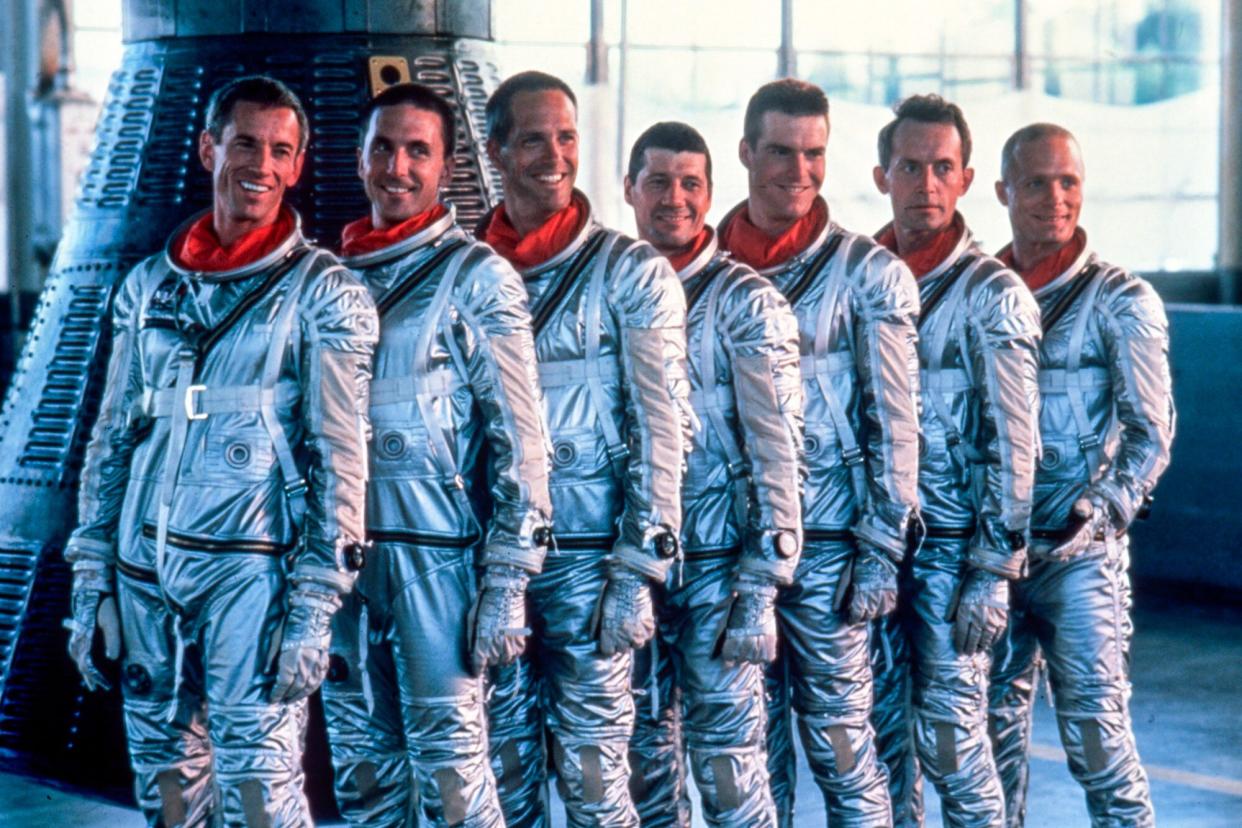
Once deemed "the American Max Von Sydow" by cinematographer Robert McLachlan, it wasn't until the age of 30 that Lance Henriksen appeared in his first film, 1972's It Ain't Easy (streaming for free on Tubi).
Prior to his screen appearances, Henriksen had a varied youth. He left school after the first grade, having endured a difficult childhood in which his mother banished him from the family home at just seven years old, leaving the young boy with nothing but his birth certificate. The young actor quickly joined up with the United States Navy for three years in the mid '50s, where he achieved the rank of petty officer third class. After serving, Henriksen worked as both a muralist and a laborer in Europe. (To this day, Henriksen continues to craft art, working in clay that he sells on his personal website.)
After his years of bouncing around, Henriksen eventually graduated from the Actors Studio in Manhattan and began performing in local repertory productions, while occasionally finding time to travel to Boston and Chicago for the odd stage gig.
It was It Ain't Easy, however, that launched the actor's career and set him on the path to become one of cinema's most prominent faces. Henriksen went on to feature in small parts in massive films such as Dog Day Afternoon and Close Encounters of the Third Kind. Soon after, he would take on increasingly sizable roles in notable films like Walter Hill's Johnny Handsome, Jagged Edge, The Right Stuff, and, lest we forget, Piranha II: The Spawning (which marked the feature directing debut of James Cameron, with whom Henriksen would forge a fruitful working relationship, appearing in the the director's later efforts The Terminator and Aliens).
With 260+ credits to his name and counting, Henriksen has played cyborgs, cutthroat cops and cutthroat criminals, astronauts, sneering sharpshooters, and most recently Willis, a frail, bigoted father deteriorating from dementia in in Viggo Mortensen's directorial debut Falling. Mortensen's drama is the film which finally gives Henriksen his rightful place in a spotlit starring role. As a racist, homophobic patriarch who alienates everyone and anyone within his blast radius, Henriksen does what he does best as an actor: he makes a potentially intolerable character tragic and pitiable, while at the same time never undercutting his abhorrent nature.
With any luck, this role is just the beginning of Lance Henriksen's leading-man era. To toast the actor's 50-year career, EW has picked 10 of Henriksen's best performances in film and television.
10. <i>The Right Stuff</i> (1983)
Phillip Kaufman's epic charting the first 15 years of America's space program, adapted from the non-fiction work by Tom Wolfe, focuses on the work and home lives of the Mercury Seven — including John Glenn (Ed Harris), Chuck Yeagher (Sam Shepard), Alan Shepard (Scott Glenn), and Walter "Wally" Schirra (Henriksen) — the military pilots selected to man the first human spaceflight for the United States.
Kaufman's lively, lightly-fictionalized account of the space race is a precursor to the sort of art-house blockbusters auteurs such as Christopher Nolan and Denis Villaneuve are now crafting. EW's Joshua Rich called The Right Stuff "a comedy through and through. Sam Shepard's maverick Chuck Yeager, Dennis Quaid's narcoleptic Gordo Cooper, and Fred Ward's cuddly Gus Grissom are priceless portrayals of true heroes… Kaufman gets to the heart of the American experience when he cuts to a clownish LBJ (Donald Moffat) locking horns with a housewife, and a pair of mismatched G-men (Jeff Goldblum and Harry Shearer) puking off the side of an aircraft carrier. (No wonder the film crashed in theaters.)"
As Schirra, meanwhile, Henriksen delivers a subdued performance that captures the real-life astronaut's mannerisms and tone with such accuracy it appears almost uncanny. Out of the prolific ensemble cast, Henriksen is one of only several actors who disappears entirely into their respective role, leaving not a trace of their off-screen selves recognizable.
If you loved The Right Stuff (1983), you might also enjoy: First Man (2018)

9. <i>Quick and the Dead</i> (1995)
Ellen (Sharon Stone), an eminently skilled gunslinger, comes to the town of Redemption in search of revenge against the man who killed her father Herod (Gene Hackman, essentially remixing his role from Unforgiven), the mayor of Redemption who is in the midst of organizing a quick-draw competition in the town's center. Ellen enters the contest, along with swarthy outlaw Ace Hanlon (Henriksen) and The Kid (Leonardo DiCaprio), who has his own debt to settle with Herod.
Sam Raimi's comic book-inflected western works as both a rollicking throwback to cowboy pictures of yore and a postmodern view of the genre. Certainly one of our finest visualists, Raimi tells much of the story here with his trademark camera trickery. The actors are all doing wonderful work, each on the same page of what film it is they're making.
Henriksen plays Hanlon as a gorgeously scuzzy wannabe-dandy quickshooter who, convinced of his unflappable trigger talents, features in the film's most memorable duel opposite Hackman. It's a shame Henriksen has yet to collaborate on any further films with Raimi, as he stands second behind only Bruce Campbell on the list of actors who seem to not only understand but excel under Raimi's style.
If you loved The Quick and the Dead (1995), you might also enjoy: Bloodsport (1988)
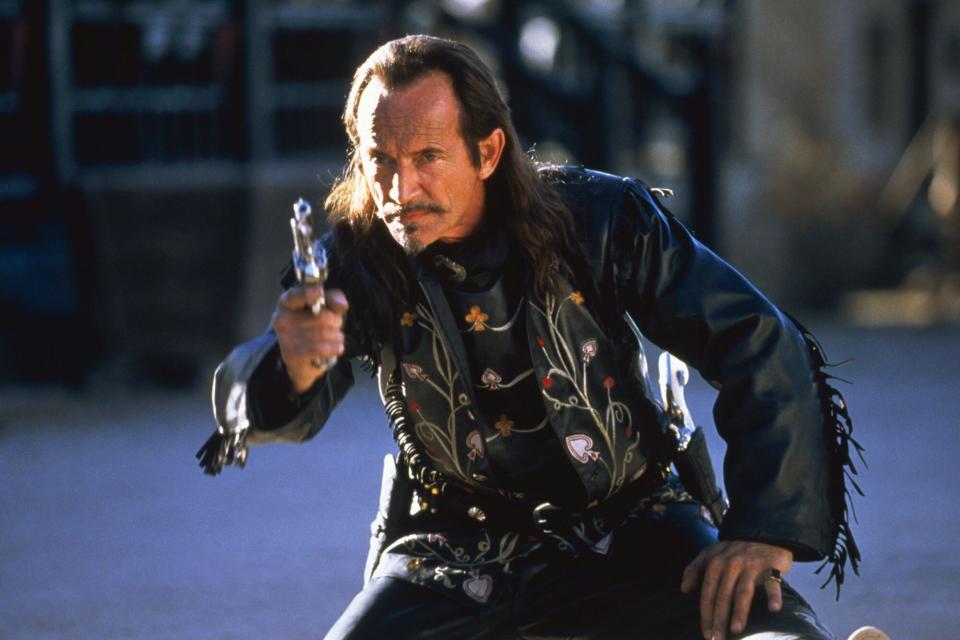
8. <i>Scream 3</i> (2000)
Dewey (David Arquette), Gale (Courteney Cox), and Sidney (Neve Campbell) travel to Hollywood, where a new Ghostface killer is picking off the actors representing our heroic trio on the set of Stab 3: Return to Woodsboro, the series of films-within-the-films based upon the events of the original Scream. It's meta-overload to be sure, including "Parker Posey [playing Jennifer Jolie], a character based on Gale Weathers, the haughty TV-news personality portrayed by [Courteney Cox] in the first two Scream films," as EW's review explained, while Emily Mortimer (as Angelina Tyler) plays a potentially sinister stand-in for Sidney. Most notably, however, Lance Henriksen features prominently as John Milton, a lecherous studio head who may or may not be a facsimile of Harvey Weinstein.
Scream 3 is often dealt a short shrift by series fans and critics alike, but the flack is largely undeserving. Admittedly, it does not feel in tune with the rest of the series. Much of this disparity has to do with the then-recent Columbine tragedy, which led to a blink-and-you-missed-it industry-wide blackout on gratuitous bloodletting in films.
A significant chunk of the second half involves Jennifer and Gale teaming up to crack the case, and it is without doubt one of the highly entertaining passages in any of the Scream films. The duo's super-sleuthing leads to the film's most compelling thread, smuggled into the film via Henriksen's character and delivered with a quiet outrage by Craven.
As executive producer at Sunrise Studios, and the mastermind who greenlit the Stab films in the first place, Milton eventually confesses to various misdeeds after being confronted with damning evidence that the high-powered producer perpetrated a long-ago sexual assault upon Sidey's mother, an aspiring actress working under the name Rina Reynolds. Milton fires back in a monologue that was perhaps overlooked at the time but in recent years has adopted a chilling resonance:
"Hollywood is full of criminals whose careers are flourishing…Rina knew what [those parties] were. It was for girls like her to meet men. Men who could get them parts, if they made the right impression. Nothing happened to her that she didn't invite in one way or another, no matter what she said afterwards. Things got out of hand. Maybe they did take advantage of her. You know, maybe the sad truth is that this is not the city for innocents. No charges were brought, and the bottom line is that Rina Reynolds wouldn't play by the rules. You wanna get ahead in Hollywood? You gotta play the game or go home."
In light of the last six years, which has seen Weinstein's fall from grace and subsequent incarceration (and further trials), Henriksen's role here bears an almost nauseating realism to it. Speaking to the actor's depth, he manages to imbue Milton with a demented sympathy despite his horrible deeds. It is one of Henriksen's juiciest roles, and he's clearly relishing the opportunity to play a multi-faceted scumbag.
If you loved Scream 3 (2000), you might also enjoy: Happy Birthday to Me (1981), the ultimate Scooby Doo slasher.
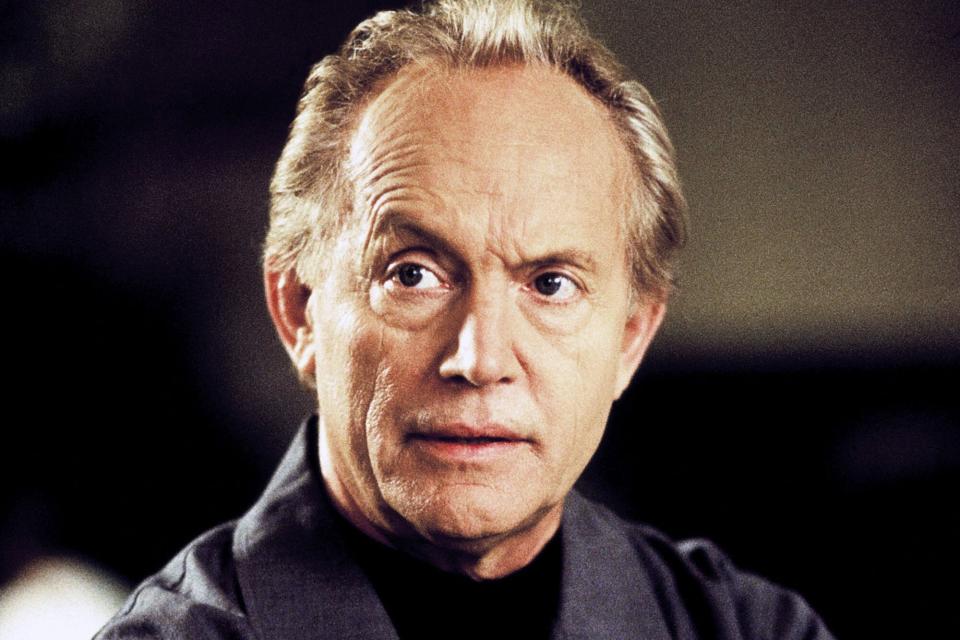
7. <i>The Terminator</i> (1984)
Henriksen is wonderful here as Detective Hal Vukovich, who, along with Paul Winfield's Lt. Ed Traxler, finds himself assigned to the case of the "Phone Book Killer," a madman tracking down and murdering women by the name of Sarah Connor. What Vukovich is unaware of is that his culprit, the Terminator (Arnold Schwarzenegger) himself, is after one very particular Sarah Connor (Linda Hamilton, one of our great actors), whom he has been sent back from the future to kill in order to prevent the birth of her progeny John Connor, to prevent the young man leading a successful future resistance against the defense network Skynet, who are intent on initiating a nuclear armageddon in order to destroy the human race.
The Terminator is a wonderful adventure picture that benefits wholly from the humanist characters and realistic settings. As spectacular as T2 is, the series was never as exhilarating and edgy as it was here, with the fantastical concepts at once seamlessly blending with the grounded suburban settings and lending them a patina of the absurd.
Henriksen was originally slated to play the eponymous character, with James Cameron even going so far as to sketch Henriksen's face onto concept art and send the actor in his full Terminator costume to a meeting with executives at Orion Pictures, the company bankrolling the picture. Of course, the role went to Arnold, but The Terminator still features one of Henriksen's most compelling performances.
When asked by EW in 2001 about his experience shooting the movie, the actor said that the production "didn't have enough money to pay me to leave the precinct. [My character] was doing phone calls mostly. Phoning in the performance, so to speak."
If you loved The Terminator (1984), you might also enjoy: Shocking Dark (1986), Bruno Mattei's ludicrously fun Italian Terminator rip-off.
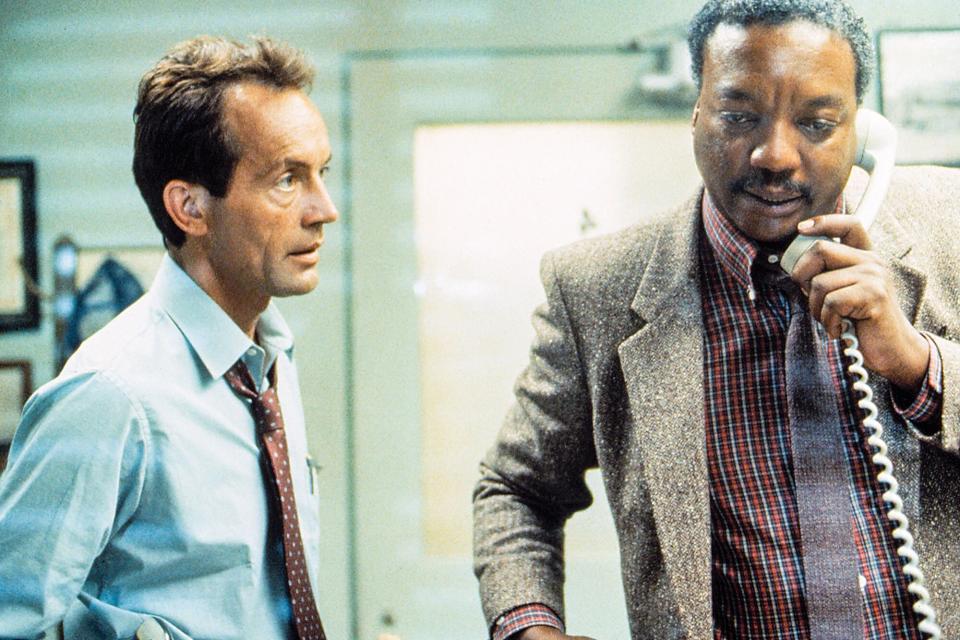
6. <i>Pumpkinhead</i> (1988)
Distraught after the hit-and-run death of his son by a group of callous teenagers, Ed Harley (Henriksen) seeks out Haggis (Florence Schauffer), a local witch, begging her to resurrect his son. Haggis informs him that she cannot bring back the dead, but offers to assist Ed in revenge.
Using an exhumed corpse and familial blood, Haggis resurrects the decayed body, which materializes as a gigantic, sinewy monster known as Pumpkinhead. As Pumpkinhead begins picking off the teens one by one, Ed has a change of heart and attempts to put a stop to the carnage.
Special effects maestro Stan Winston (an Oscar winner for James Cameron's Aliens and T2) made his directorial debut with this singular feature that's at once melancholy, campy, and disgusting. While its pacing is a bit inconsistent, and the overall product feels distressingly similar to Fred Olen Ray rather than anyone who's worked under Cameron or Spielberg, Pumpkinhead is one of the few times that Henriksen has been afforded the chance to lead a film. He's clearly relishing the opportunity, imbuing his grieving father with a sense of loss that is practically discomfiting.
As the film goes on, ramping up the increasingly high-spirited, gory hijinks along the way, Henriksen is the glue that keeps the audience invested. It's a greatly affecting performance within a tremendously fun film.
If you loved Pumpkinhead (1988), you might also enjoy: Rolfe Kanefsky's There's Nothing Out There (1991)
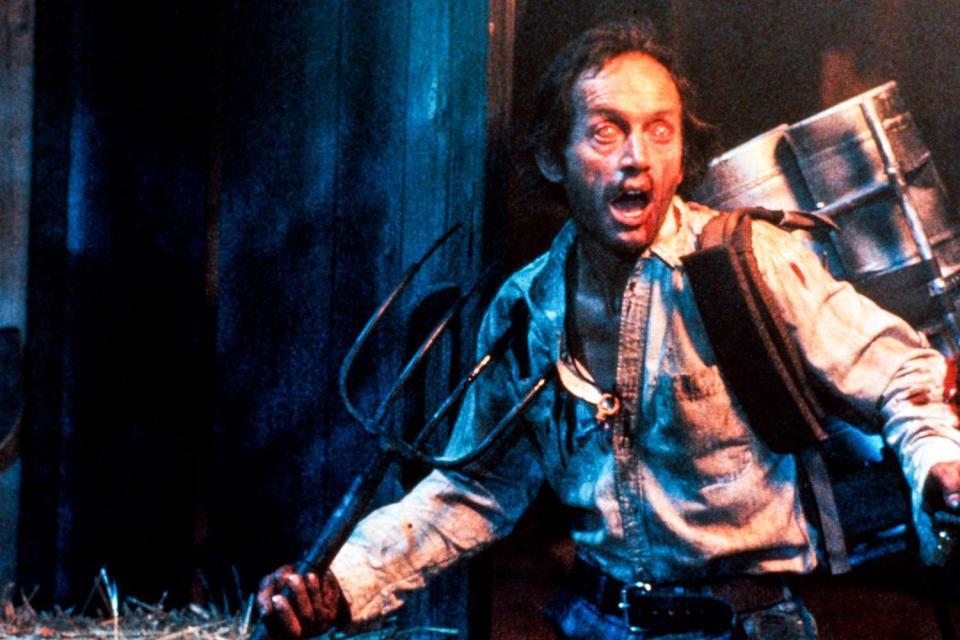
5. <i>Millennium</i> (1996-1999)
Frank Black (Henriksen) is a former FBI agent and current freelance criminal profiler who possesses an ability to see through the eyes of criminals. The first season finds Frank balancing his life at work tracking serial killers and his life at home tending to his wife Catherine (Megan Gallagher) and his daughter Jordan (Brittany Tiplady), who has seemingly inherited her father's power. The second season lightly reboots itself to deal more in the world of demons and conspiracy theories, while season three relieved Frank of his matrimonial commitments and sent him to Washington D.C. to work with the FBI once again.
Millennium was created by Chris Carter after the success of his series The X-Files sent Fox executives to mine the young creative for more lucrative ideas. At the time, the impending turn of the century was sparking much consternation which Carter found ripe for the picking. While the show was originally sold as "Se7en in Seattle", the second season would deviate from the expected formula before pulling itself back into shape for a rollicking third season. Unfortunately, Fox pulled the plug after the cliffhanger conclusion of that season and it was left to Carter to tie up the loose ends of this series on a crossover episode of The X-Files.
For each season, Henriksen was deservedly nominated for a Golden Globe for Best Actor in a Dramatic Series. In many ways, it's a performance that personifies what Henriksen does best, as he tethers this bizarre, Lynchian universe to a tangible reality, offering small glimmers of comic relief that never betray the series' oppressive tone.
If you loved Millennium (1996-1999), you might also enjoy: The Following (2013-2015)
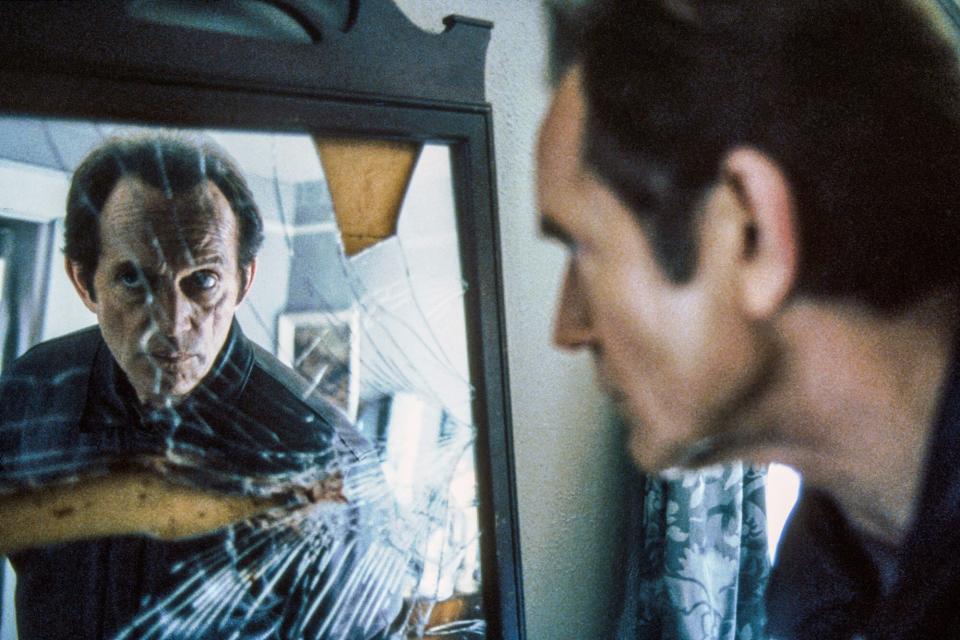
4. <i>Falling</i> (2020)
John (Viggo Mortensen) lives in Los Angeles with his husband Eric (Terry Chen), having put a great distance between himself and his father Willis (Henriksen). When John begins to exhibit signs of dementia, John and his sister Sarah (Laura Linney) decide to bring their father west, forcing Willis to sell his beloved farm and confront his antiquated points of view.
It's wonderful to watch Henriksen here, sinking his teeth into what is ultimately his meatiest and most impactful role in some time. Mortensen's film covers ground walked by many other features over the years, but what sets Falling apart are the characters at the center. They behave as real people might, and Mortensen (who also wrote the screenplay) doesn't sand down the edges of his story.
Henriksen's character is confrontational, to say the least, but his aggressive nature belies an inner tenderness that remains consistently just out of reach. The actor manages to find Willis' humanity, playing him as a broken soul looking for something that might redeem his waning days but going about it in entirely the wrong ways. It's a brilliant performance, and perfectly modulated; a lesser actor could have easily lost the thread and let Willis become simply nasty, or would have tried to play him comedically to soften the impact. Henriksen has no such qualms, though, and as a result delivers one of his most textured, rewarding performances.
If you loved Falling (2020), you might also enjoy: Tamara Jenkins' The Savages (2007), another Laura Linney-led dementia dramedy but done with a lighter touch.
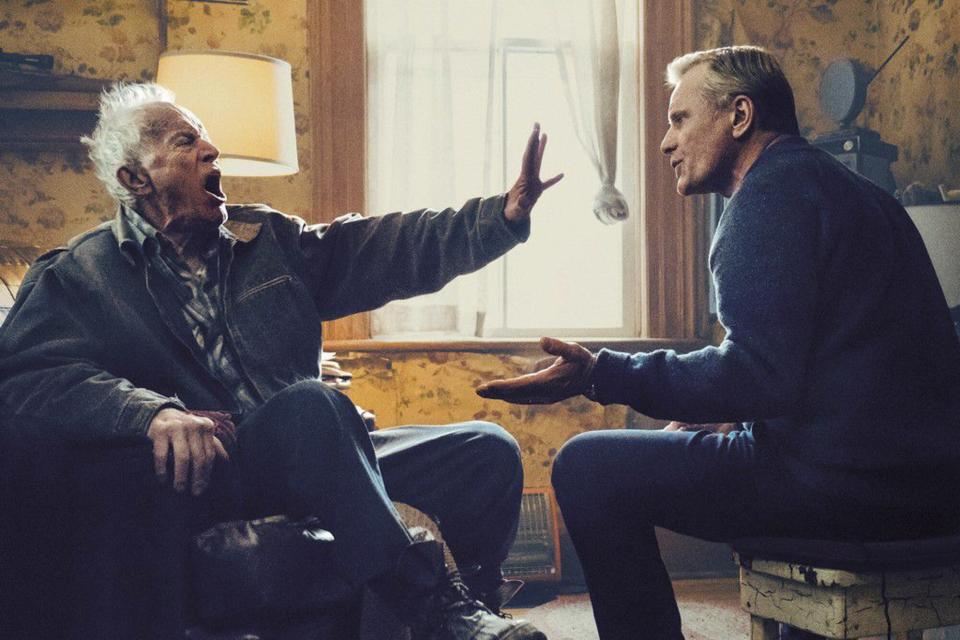
3. <i>Near Dark</i> (1987)
Caleb (Adrian Pasdar) meets Mae (Jenny Wright) at a nightclub and the two instantly hit it off. After their one night stand, during which Mae bites Caleb on the neck, Caleb finds himself desperately craving human blood. He abandons his family to travel across the country in search of fresh viscera, but along the way he must decide between a life on the run or one with his family at home.
Kathryn Bigelow's western-horror mélange is a fabulous bit of popcorn entertainment with a swoon-worthy score by Tangerine Dream and staggering central performances by Pasdar and Wright, as well as Bill Paxton as the dastardly Severen and Henriksen himself as Jesse Hooker, the leader of the marauding pack of vampires. Thirty-five years after its release, Near Dark remains a masterpiece of the genre — well, to be accurate, several genres.
Bigelow's film has gone on to inspire a great deal of flesh-consumption cinema, notably Claire Denis' Trouble Every Day and, most recently, Luca Guadanigno's cannibals-on-the-road romance Bones and All, which owes a significant debt to Near Dark (and features a climactic flourish straight out of Denis' film, to boot). What continues to distinguish Near Dark is Bigelow's unwavering commitment to the concept; she never backs down, and delivers on every grisly opportunity the premise presents.
Throughout the film, very little is revealed about Jesse's origins (though it's made abundantly clear that he fought for the south during the Civil War) and the leather-clad Henriksen imbues the character with an otherworldly physicality that plays nicely against these more mysterious qualities. It's a delightfully charismatic performance that will also send a pure shiver through your veins. In other words, it's what Henriksen does best.
If you loved Near Dark (1987), you might also enjoy: Bones and All (2022)
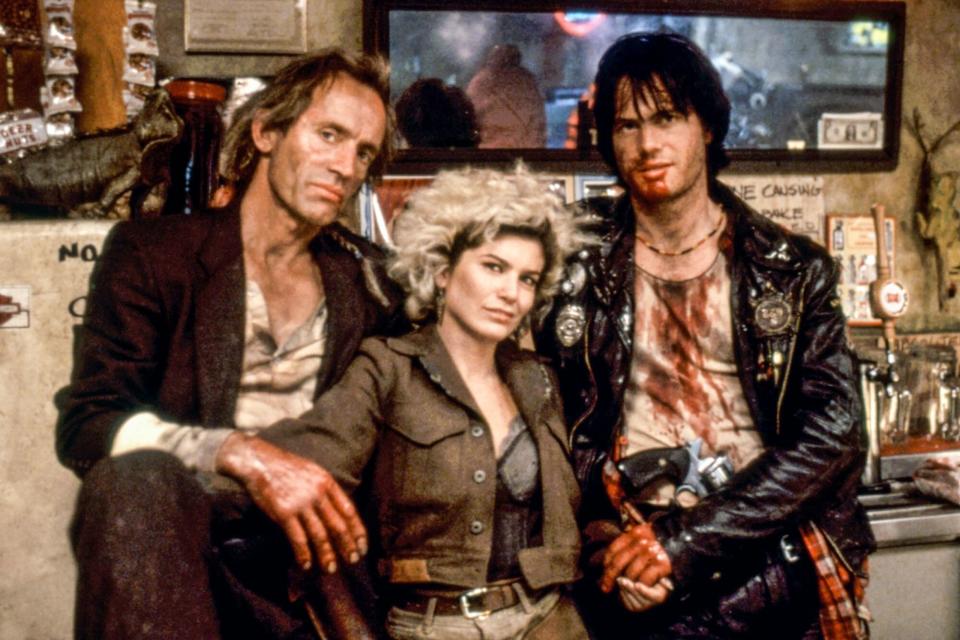
2. <i>Aliens</i> (1986)
Ripley (Sigourney Weaver) has been floating in outer space for 57 years after the events of Alien. Discovered and revived by her employers at the Weyland-Yutani Corporation, Ripley's account of alien presence on LV-246, which in the intervening years has become a terraforming colony, provokes ambivalence from those around her.
In order to prove herself, Ripley agrees to accompany a group of mercenaries, as well as android Bishop (Henriksen), on a mission to the colony — given the promise that they exterminate the creatures once and for all. When they arrive, however, they discover no living soul with the exception of Newt (Carrie Henn), who has terrifying tales to tell about the beasties who "mostly come at night… mostly."
What is there to say about Aliens that hasn't been said already? It's spectacular. It may stand as the greatest sequel of all time, a masterclass in taking a follow-up in not just a new direction but transferring it to an entirely different genre, producing a result that is every bit an equal to the original masterpiece. Nearly 40 years on, the effects in Aliens hold up astonishingly well. We've gone on before about the durability of quality practical effects versus instantly-aged CGI, but there is no greater example of this than Aliens.
Weaver creates a tough-as-nails character that nonetheless feels emotionally vulnerable, at times achingly so. Rightfully, she was nominated for a Best Actress trophy at the Academy Awards, the rare time that a genre picture has claimed such a coveted spot in the ceremony. The much-discussed mother-and-daughter parallels between Ripley and Newt are lovingly teased out by Cameron; this is one of his most emotionally impactful films, as it never stoops to melodrama or manipulation tactics. It's all wonderfully patient and underplayed, which is ironic, though all the more satisfying, given the hell-for-leather action on display.
Henriksen, meanwhile, is brilliant as Bishop. The actor's performance here shows that he truly is one of the great chameleonic onscreen presences. Not only does he disappear, unrecognizable, into each and every role, he always seems to understand exactly the type of movie he's in and adjusts his performance thusly. It's rather astonishing how few actors master this trait. (Henriksen would return several times to the Alien franchise — as Bishop's designer in David Fincher's divisive Alien 3, and in AVP: Alien Vs. Predator as Charles Weyland, the man upon whom Bishop was modeled.)
If you loved Aliens (1986), you might also enjoy: Starship Troopers (1997)
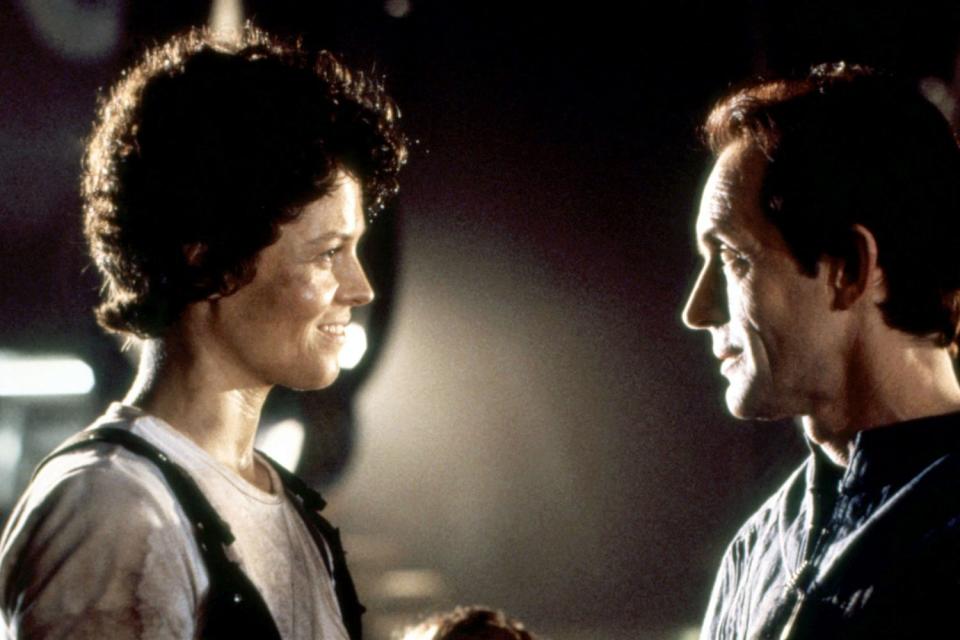
1. <i>Hard Target</i> (1993)
In Hong Kong maestro John Woo's first American feature, Chance Boudreaux (Jean-Claude Van Damme), a former marine and merchant seaman, is asked by young Natasha (Yancy Butler) to assist her in finding her father (former Navy SEAL Chuck Pfarrer, who also wrote the film), a Vietnam vet who is currently living on the street.
Their investigation, aided by the plucky-yet-vicious Detective Maria Mitchell (a show-stealing Kasi Lemmons, director of the upcoming Whitney Houston biopic I Wanna Dance with Somebody), leads them to obscenely wealthy businessman Emil Fouchon (Henriksen, delivering his greatest performance — full of fun-loving, high-stakes lunacy). Fouchon, struck with a bout of boredom in his gilded life, is charging bloodthirsty men a steep fee for the privilege to hunt homeless people throughout New Orleans. Armed with his guns, and thighs of steel, Boudreaux is bound to stop the vicious businessmen.
Amongst a succession of wild action sequences that provoke admiring gales of I-can't-believe-they're-doing-this laughter, there's a prescient message about America's response to homelessness — specifically, the turning of a blind eye to the unhoused population. The fact that Woo can weave social commentary so deftly amidst a pre-teen-level, joyous exploration of how blood splatters and the human body explodes speaks more to the filmmaker's prowess than any further praise could.
Henriksen plays his part to the hilt here, bringing a gravitas that few actors would consider bringing to the role of a shoot-'em-up movie villain. Fouchon is terribly vile, but he's also a bit of a dandy. A well-spoken, violent sociopath who thinks nothing of relieving his associates of an earlobe before retiring home to tinkle away at his ivory piano.
In Woo's first cut of the film, Henriksen's character was in fact afforded a great deal more screen time than Van Damme's. This didn't fly with JCVD, who recut the film himself to center Boudreaux in the action. Woo's focus on Fouchon in his director's cut makes sense given Henriksen's performance, which in many ways plays as that of the film's lead. Woo, for his part, trusted his villain implicitly, all but removing himself from Henriksen's creative process. The actor would later say the only direction he received from Woo in regards to playing Fouchon was, "You hunt the weak."
EW's Owen Gleiberman raved that Hard Target was "sleek, bloody, and exciting: an action film that rediscovers the lyricism of violence. Woo, a thrillingly kinesthetic pop stylist, is heir to a generation of balletic action poets… By the time Hard Target reaches its amazing climax, set in a warehouse stocked with surreal Mardi Gras floats, the film has become an incendiary action orgy, as joyously excessive as the grand finale in a fireworks show. Woo puts the thrill back into getting blown away."
If you loved Hard Target (1993), you might also enjoy: John Woo's A Better Tomorrow (1986)
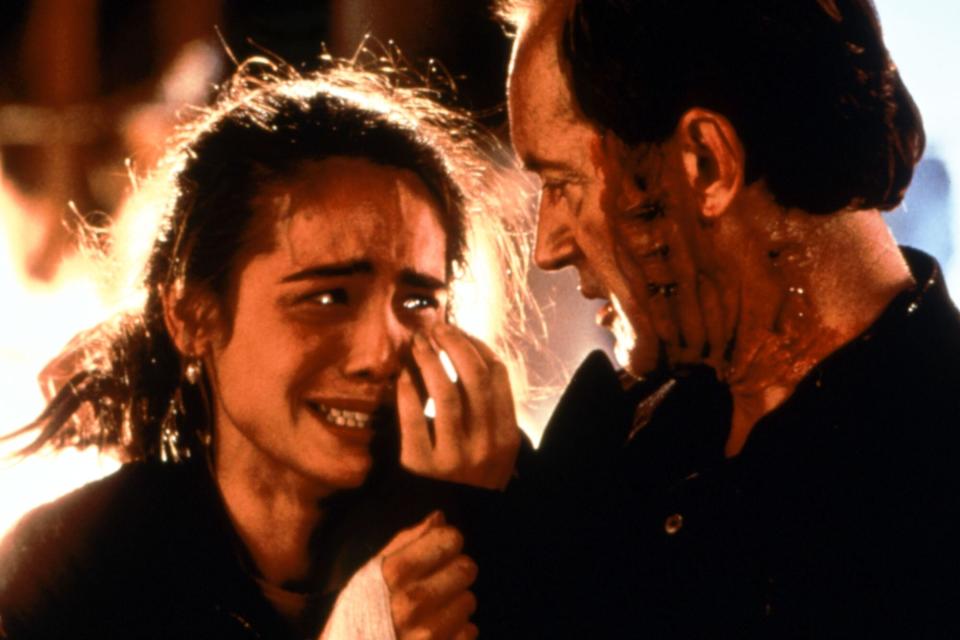
Related content:

